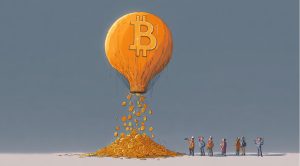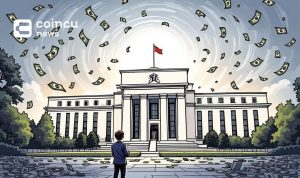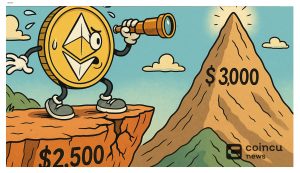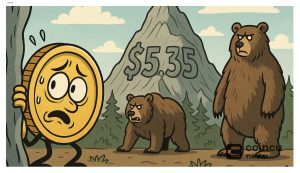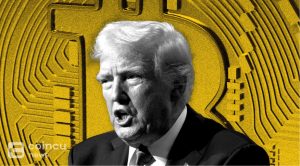| Key Points: – Trump’s tariff policy triggers global market turmoil, with warnings from Wall Street giants. – Ethereum and Bitcoin drop sharply as macro uncertainty impacts crypto markets. – JPMorgan’s Jamie Dimon highlights inflation and recession risks from tariffs. – BlackRock’s Larry Fink sees a buying opportunity but warns of systemic pressures. |
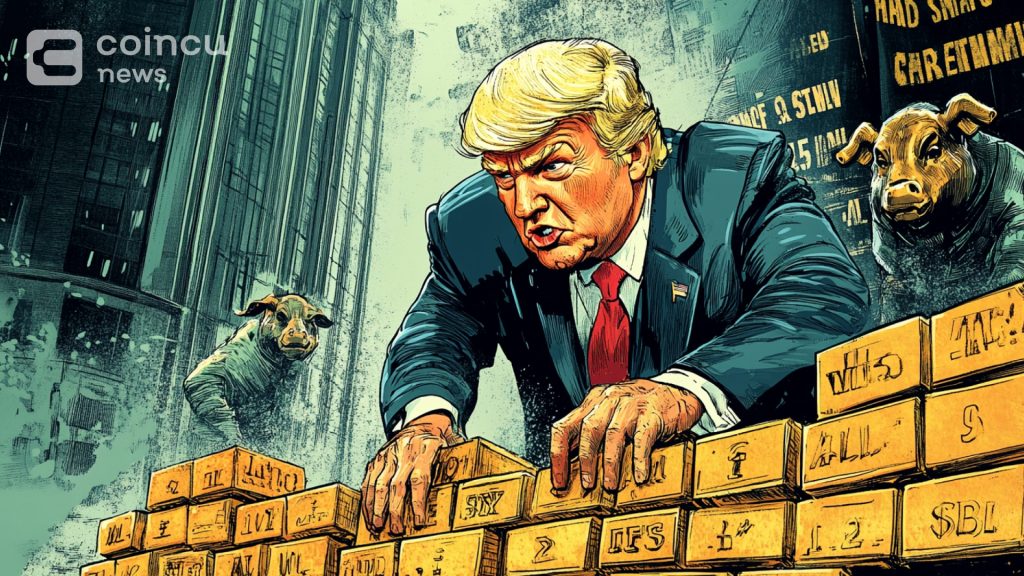
Trump’s tariff policy is fueling inflation fears and recession risks, prompting dire warnings from JPMorgan and BlackRock amid a sharp crypto and stock selloff.
Trump’s tariff policy new round is no longer just political posturing; they’re shifting the macroeconomic landscape. Experts warn that their ripple effects could reach beyond traditional markets and challenge the very stability of global monetary frameworks.
Wall Street Sounds the Alarm Over Trump’s Tariff Policy
U.S. President Donald Trump’s tariff announcements have sent shockwaves across global financial markets. Amid a fresh wave of protectionist measures, top Wall Street executives are sounding alarms about inflation, slowing economic growth, and long-term geopolitical risks.
Jamie Dimon, CEO of JPMorgan Chase, warned shareholders that the new round of tariffs will likely raise costs on both imported and domestic goods, potentially accelerating inflation and increasing recession risk. While he acknowledged the logic behind “America First” policies, Dimon emphasized that isolating the U.S. from its Western economic and military alliances could ultimately weaken the country over time.
Meanwhile, BlackRock CEO Larry Fink echoed a cautious tone, highlighting that the market could still fall another 20%. Speaking at the Economic Club of New York, Fink noted that while the situation doesn’t yet pose systemic risk, the current environment presents both short-term dangers and long-term opportunities.
Beyond immediate market losses, Dimon and Fink are urging investors to prepare for deeper macro impacts. The dual threat of rising prices and economic contraction could reshape the investment landscape through 2025 and beyond. With the Federal Reserve unlikely to cut rates this year due to persistent inflationary pressures, risk assets—crypto included—could remain under pressure.
Dimon’s remarks reinforce the notion that global fragmentation if driven by unilateral U.S. policies, could diminish America’s long-term strategic position. In contrast, Fink sees the current pullback as a potential entry point for long-term investors, albeit with heightened volatility and caution.
Crypto Markets Caught in the Crossfire
Trump’s tariff policy turmoil hasn’t spared the crypto market. Bitcoin (BTC) dropped to $74,598—its lowest level since November 2024—before recovering to just above $80,000. Ethereum and other top digital assets followed suit, with the CoinDesk 20 index plunging over 10% in a single day and nearly 20% across the last month.
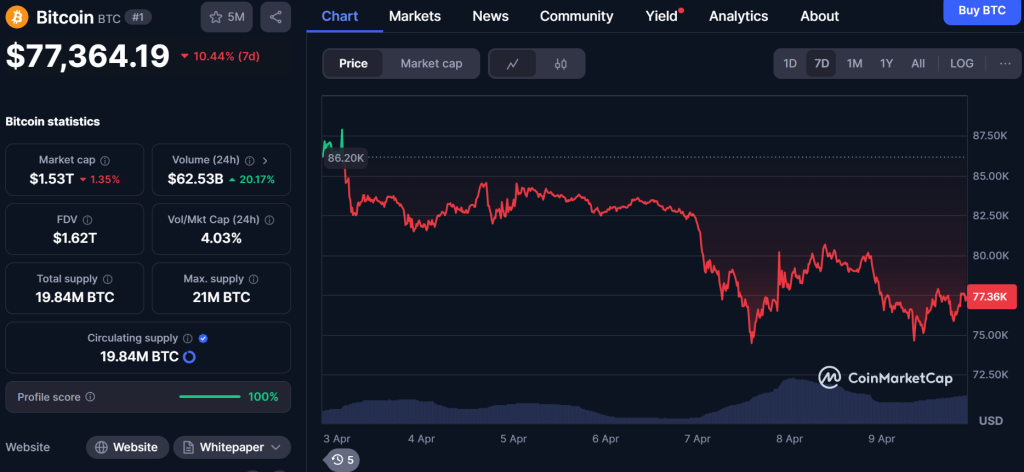
Investors had hoped crypto would decouple from traditional markets amid macro stress, acting as a digital haven. However, the current wave of risk aversion has dragged crypto back into the broader market selloff, undermining its narrative as a hedge against inflation or political instability.
Fink further warned of strategic risks to the U.S. dollar stemming from Bitcoin’s growing perception as a store of value. If American investors begin to favor BTC over USD in times of uncertainty, the dollar’s global dominance could be at risk.
As the dust settles, one thing is clear: Trump’s tariff policy plans are no longer just political headlines—they’re actively reshaping global markets. Crypto traders, institutional investors, and policymakers alike will need to navigate a new era where economic nationalism and decentralized assets collide more forcefully than ever.
| DISCLAIMER: The information on this website is provided as general market commentary and does not constitute investment advice. We encourage you to do your own research before investing. |










